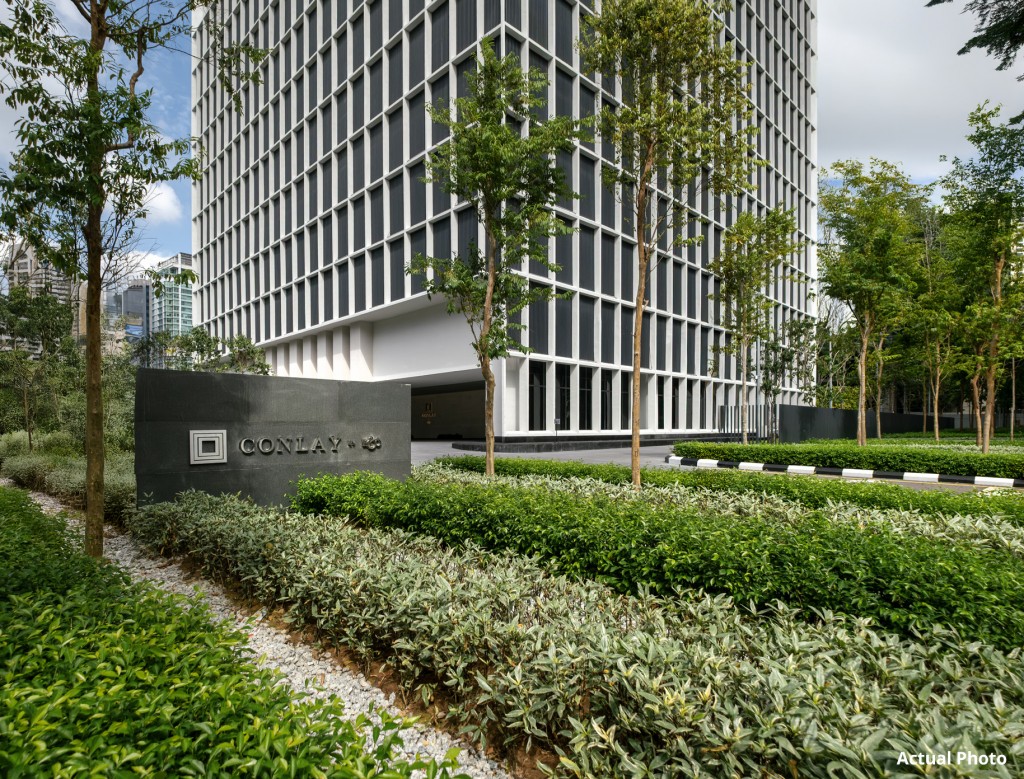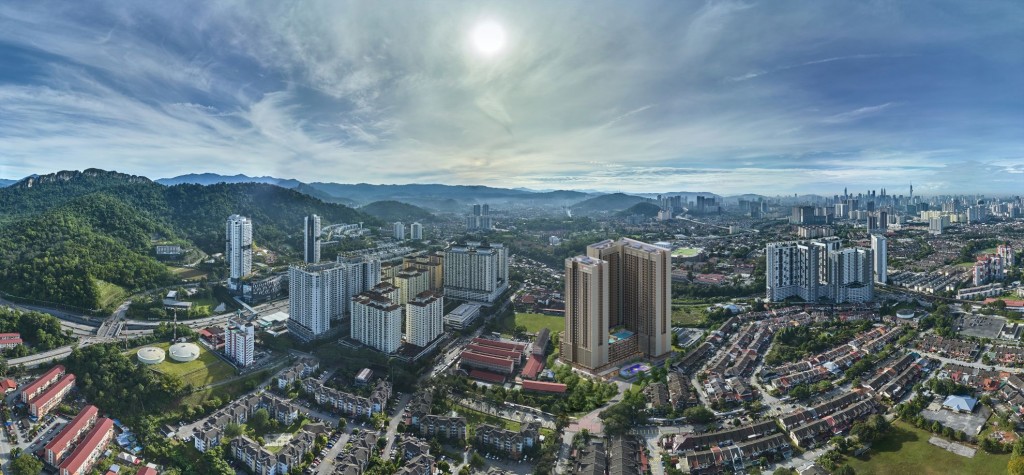
Workers stand on the roof of a commercial building under construction in Kathmandu, Nepal, on Wednesday, Nov. 1, 2017. India and China have often jostled for influence in Nepal, a nation of 28 million people sandwiched between the two Asian giants. While Chinese investment in Nepal has surpassed India, the practical difficulties of transporting people and goods across the world's highest mountains have always pushed Nepal toward India, its largest trading partner. Photographer: Sara Hylton/Bloomberg
MALAYSIANS who can afford it have the opportunity to invest in financial instruments that could increase your earnings.
But like most things, there is bound to be a downside. In the case of capitalism, social and income inequality is one of its products.
The wiping out of the working class is a global cause for concern. Knowing that a healthy working class is crucial to a robust economy, chief economists and central banks worldwide are continually tinkering with their policies to be aligned with this agenda.
Bucking the trend, however, is Malaysia where the Gini coefficient report showed that we have experienced some improvement in narrowing the gap between the rich and poor. (Gini coefficient is a tool used to measure income inequality in a nation.)
The Gini reading, which was at 0.460 in 2002-2004, has improved steadily to 0.44 in 2007-2009, 0.430 in 2012, 0.401 in 2014 and further to 0.399 in 2016.
To accelerate this positive trend, the Consumers Association of Penang (CAP) has been calling for the reintroduction of inheritance tax in budget dialogues since 2001.
According to CAP, despite marginal improvements in the last decade, economic disparity has risen considerably since 1980. Thus it asserts that a suitable tax mechanism should be in place.
“Taxation is one of the best ways to bridge the inequality gap. Taxes will help Malaysia move towards a just society.
“Much needs to be done to enable the poor to break the vicious cycle of poverty.
A significant portion of Malaysian children is undernourished with about 15% found to be underweight and stunted,” explained CAP president S. M. Mohd Idris.
He said that monies received from inheritance tax should be channelled to uplift the incomes of the poor, the disadvantaged and the aged by way of low-cost housing, education and other welfare benefits.
“All Malaysians have the moral responsibility to create a safety net for the poor and needy,” Idris added.
Adding to the national coffers CAP believed that the reintroduction of inheritance tax will eventually lead to more significant national savings.
“With proper use of taxes, there will be more opportunities for employment and entrepreneurship among those in the low-income group.
“In turn, this leads to higher earnings for them. Once lifted out of poverty, the national savings will rise,” Idris explained.
Today, many countries such as the United States, Britain, France, Germany, The Netherlands and Canada have implemented either the Inheritance Tax or estate duty.
In the Asean region, only Vietnam imposes an inheritance tax or estate duty. Countries abolished it – Malaysia in 1991, Brunei (2013) and Singapore (2008) – because it was deemed to have prevented against the proposal.
The call for the reintroduction of inheritance tax has drawn criticism from various parties.
Among them was a senior member of the Real Estate and Housing Developers’ Association (Rehda) who cautioned that such a tax mechanism could lead to capital flight.
Asked about this, Idris responded by saying that high net-worth individuals are already moving their monies overseas to chase higher possible returns.
“Inheritance tax is only one of the criteria for choosing where to park one’s money. Hence, it remains to be seen whether inheritance tax will lead to capital flight,” Idris argued.
Socio-Economic Research Centre (SERC) executive director Lee Heng Guie said that inheritance tax is one of the most sensitive and contentious taxes.
“While it is only levied on the wealthiest households as a tool for income distribution, it dampens work effort, entrepreneurship and wealth creation as well as causes the loss of economic output due to less capital formation.
“In practice, the correlation between inheritance tax and income equality is not strong and also a poor source of revenue,” Lee contended.
Moreover, Lee said that inheritance tax is losing ground worldwide because too high a tax rate stifles work efforts and economic output, plus many exemptions and a narrow base will result in only a small revenue being collected in the end.
“It has high compliance and enforcement costs; it is indeed an arduous task and process to value inheritance assets.
Thus the tax effort and administrative cost will outweigh the amount of revenue collected,” said Lee.
For Malaysia, the imposition of inheritance tax requires careful consideration, weighing on the aspects of equal opportunity, its effectiveness as a tool for fair income distribution and its dampening effect on growth and capital formation.
Institute for Democracy and Economic Affairs (Ideas) chief executive Wan Saiful Wan Jan said it is wrong to talk about inheritance tax today.
“If you want to be popular, then inheritance tax is certainly something you should propose. You can ride the wave of populism that is flooding the world today.”
He said: “Every week we hear how we should be worried about the low retirement savings that people have. And bodies like the Employees Provident Fund (EPF) and various savings institutions are going all out to encourage people to keep enough for the future.
“It is then incoherent to suggest having inheritance tax because this is a tax on savings. Even worse, it is double taxation because people are already paying income tax before they can save,” he added.
Saiful explained that inheritance tax is a bad idea because it sweeps over everyone, including heirs who may badly need the inheritance.
“For example, I wish to donate my wealth to an orphanage or a poor relative.
The tax will prevent that from happening in its entirety because Putrajaya wants to take some of that money to pay bills,” he remarked.
MEASURES TO SUSTAIN THE WORKING CLASS
What then are the alternative measures that should be in place to sustain the working class?
Lee and Saiful acknowledged that the gap between the rich and poor will always exist as a side-effect of capitalism.
According to Saiful, the central issue is to make sure that the poor can cope with the rising cost of living.
“The situation is worrying because more people are complaining about how they cannot afford daily household items. It is a problem both in the rural and urban areas.
“Tackling this matter requires an environment that enables people to generate more income for themselves and their families, as well as save for the future while creating a caring society where people are inclined to help each other without being coerced by the government.
"It certainly should not be focused on penalising those who are successful by implementing this tax mechanism,” he stressed.
Instead of taxation, Saiful suggested greater economic liberalisation to encourage trade, a regulatory environment that enables entrepreneurs to succeed, a more flexible job market, and easier ways for people to set up charities with tax incentives that can contribute towards bridging the income gap.
Lee also suggested having new public policies to help reduce inequality, narrow economic disparity and enhance economic mobility for all.
“The policies include providing affordable housing at reasonable financing rates, healthcare services as well as a fair and efficient public transportation for working and middle- class households.
“In this way, struggling families could build up wealth and enjoy better economic welfare,” Lee explained.
He added that investments in education, upskilling, reskilling and lifelong learning programmes are essential to raising the earning power of households.
In Malaysia, properties have long been used as tools to generate wealth. Some people are known to invest in 10, 20 or even 30 housing units.
Should the government intervene to ensure that most of the housing supply reaches genuine buyers instead of investors?
Saiful responded by saying that all home buyers, irrespective of their motives, are genuine buyers.
“Many people are buying properties for their children so that their future is secure.
Parents should not be punished for loving their children.
“Do we want to become a society that says you can only show your love if it is worth less than a certain amount and anything above that will be taxed?” he asked.
Lee stressed that public policy intervention in the form of macro-prudential measures, such as real property gains tax and responsible lending guidelines, are already in place to contain speculative investments.
He said that genuine homebuyers should not be denied a mortgage as long as the borrowers meet the lending prerequisites.
He suggested that the public and private sector should come together to increase the supply of affordable homes.
Asked what type of policies should the government consider improving the property market, Saiful advocated more creative methods of handling the bumiputra housing quota.
“At the moment, the bumiputra quota distorts pricing because it pushes up the value of other units.
“However, the issue of affordable housing cannot be tackled just by looking at how to control prices. Instead, more must be done to increase salaries and wages so that more people can afford to obtain mortgages.
"The market must be tackled holistically instead of just zeroing on housing prices,” added Saiful.













































